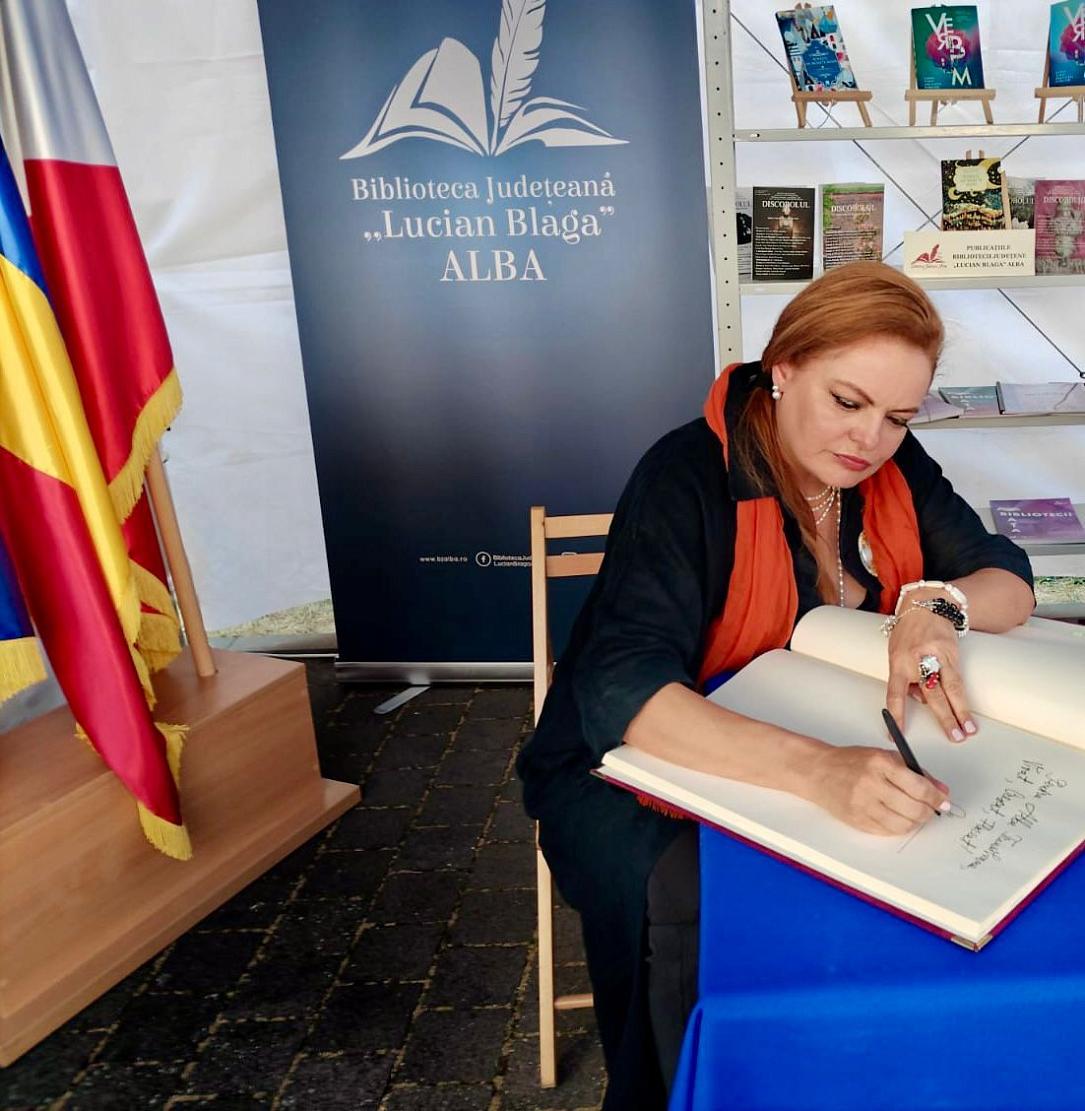Hybrid Warfare and Cultural Defense: A Message from the “Carol I” Central University Library at Alba Transilvana - Can a Library Defend a Nation?



Over the course of three days, Alba Transilvana offered a vibrant mosaic of cultural expression — from book launches and poetry recitals to thought-provoking debates on identity, sovereignty, and the shifting dynamics of today’s world. Among the notable guests were Gelu Duminică, Ramona Mezei, Varujan Vosganian, and Horia Roman Patapievici.
In her keynote address, Associate Professor Dr. Mireille Rădoi spotlighted one of the most insidious and dangerous threats of our time: hybrid warfare. Quoting Sun Tzu — “Supreme excellence consists of breaking the enemy's resistance without fighting”, she emphasized that this modern form of aggression leaves no visible ruins, but rather “disoriented people, fractured communities, and nations that no longer recognize themselves.” Hybrid warfare, she warned, “does not begin with an official declaration, but with a viral post. It doesn’t conquer cities — it erodes collective memory, mocks symbols, questions history, and fragments language.” In an age defined by programmed confusion and generalized mistrust, the real battleground is the control of perception and narrative. “Hybrid war doesn’t need rockets,” she said. “It needs just one thing: for us to stop believing in anything.”
Expanding on these subtle mechanisms, Rădoi asserted that the ultimate target of hybrid warfare is not a political regime or institution — but identity itself. And identity, she argued, is safeguarded through culture. “Culture is the immune system of a nation,” she explained. “It is what endures when propaganda fades. What remains when the algorithms and information waves retreat.” Therefore, the first targets in any hybrid conflict are not economic or political — they are cultural, for it is here that meaning, cohesion, and the limits of manipulation reside.
The questions raised were direct and unsettling: “How much of our culture is still transmitted, and how much simply inherited? How often do we educate cultural consciousness — and how often do we merely commemorate it?” In her view, a culturally literate society — “not just schooled, but shaped through critical thinking and shared memory” — becomes harder to divide, manipulate, or control. Culture, then, is “the invisible armor of a nation.” And when that armor breaks, a nation doesn’t collapse suddenly — “it withers from within, disintegrates quietly, and forgets how to recognize itself.”
Within this complex equation — where identity is the strategic target and culture the last line of defense — libraries take on a vital role. “Libraries are barracks for the conscience,” said Mireille Rădoi. They are not merely repositories of books, but vibrant centers of cultural education, where critical thinking, discernment, and attachment to authentic values are cultivated. In a world where disinformation spreads faster than truth, the library offers “access to authentic information, promotes reading and intercultural dialogue, and fosters independent thought.” In this light, a strong national network of libraries is not a luxury but a cornerstone of national security — not in the military sense, but in the formative sense: as institutions that help a society understand who it is, what defines it, and what it must protect.
In a solemn moment responding to the current geopolitical context, Mireille Rădoi presented the audience at Alba Transilvana 2025 with a “Proclamation of Culture as a Tool for National Security” — a powerful call to collective awareness, delivered on the stage of Alba Iulia, a city rich in national symbolism. Through this initiative, she advocated for placing culture at the very center of a nation's defense strategy — against not only military threats but also symbolic and identity-based vulnerabilities.
In this symbolic place of national dignity and historical unity, we solemnly and irrevocably declare that in the age of informational disorder, we proclaim Culture as a tool for defending national security:
Each of us can sign this proclamation, starting June 22, 2025.
“The cultural arms race is a strategic necessity in our time. Essential reading, access to verified information, and the development of critical thinking are now vital tools for resisting hybrid warfare — a warfare capable of toppling social order with just two clicks. That’s why we must urgently re-evaluate our national priorities and treat the budgets for education and culture with the same seriousness and urgency as those for defense. A nation strong in culture is a nation resilient by design,” declared Dr. Mireille Rădoi, General Director of the “Carol I” Central University Library.
*This is a press release.